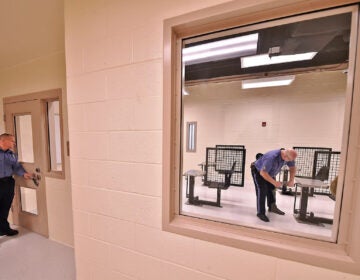Prominence of Delaware bankruptcy court threatened
Recently introduced federal legislation would upend Delaware's business bankruptcy record.

(JanPietruszka/Bigstock)
Delaware could see the number of bankruptcy filings drop dramatically if a bill moving through Congress passes. But Delaware’s leaders are not all that enthusiastic about it.
The Bankruptcy Venue Reform Act would require companies to file for bankruptcy in the states where they are headquartered or where their assets are held — preventing them from filing in states where they’re incorporated.
The legislation would likely cause a significant decrease in Chapter 11 bankruptcy filings in Delaware, where thousands of businesses from across the nation are incorporated.
Gov. John Carney, D-Delaware, and the state’s congressional delegation issued a joint statement denouncing the legislation sponsored by U.S. Sens. John Cornyn, R-Texas, and Elizabeth Warren, D-Massachusetts.
“Many American companies, large and small, choose to incorporate in Delaware because of the expertise and experience of our judges, attorneys, and business leaders. Denying American businesses the ability to file for bankruptcy in the courts of their choice would not only hurt Delaware’s economy but also hurt businesses of all sizes and the national economy as a whole,” the statement reads.
“Our economy thrives when the bankruptcy system is fair, predictable, and efficient. Experienced bankruptcy judges are critical to ensuring that companies can restructure in a way that saves jobs and preserves value. Scrapping the venue laws that have been in place for decades and replacing them with restrictions flies in the face of well-settled principles of corporate law, threatens jobs, and hurts our economy.”
However, some said the larger issue is that the legislation doesn’t protect ordinary individuals as it aims to do.
The bill’s sponsors say the bill would prevent the practice of “forum shopping,” where companies choose court districts sympathetic to the owners’ interests to the detriment of employees and retirees.
“Workers, creditors, and consumers lose when corporations manipulate the system to file for bankruptcy wherever they please,” said Warren in a statement. “I’m glad to work with Sen. Cornyn to prevent big companies from cherry-picking courts that they think will rule in their favor and to crack down on this corporate abuse of our nation’s bankruptcy laws.”
But attorney Bruce Grohsgal, professor of business bankruptcy law at Widener University Delaware Law School, said the legislation won’t protect rank-and-file employees and retirees.
Delaware judges protect those individuals to the greatest extent the bankruptcy code allows, but, as written, it provides fairly weak protections, he said. Changing the code would have more positive outcomes than restricting filing locations, Grohsgal contended.
“The bankruptcy code allows a company to modify or terminate retiree benefits, including retiree medical benefits, on fairly weak grounds,” he said.
“The better path, in my view, to protect people who have spent years working for a company and have relied on that kind of protection would be to change those provisions for the bankruptcy code,” he said. “Simply allowing an employee to see the bankruptcy case was filed in the place they worked doesn’t protect them at all.”
More than 1 million businesses, including about two-thirds of Fortune 500 companies, are incorporated in Delaware, according to the state’s Division of Corporations.
Delaware’s Bankruptcy Court has the highest weighted caseload per judge in the country, according to a 2017 U.S. District Court of Delaware report.
Historically, Delaware has been one of the largest Chapter 11 filing districts in the country. The state often tops others in cases involving more than $100 million in assets and more than 1,000 creditors.
The court report shows those “mega” cases increased from 48 in 2014 to 71 in 2016, and Chapter 11 filings increased by 93 cases over the same period. However, it’s a significant decline from 2009, during the height of the economic crisis.
The U.S. Judicial Conference reported almost 3,000 bankruptcy filings in Delaware over a 12-month period ending in September; 434 of those were Chapter 11 business filings.
“Delaware is very proud of its bankruptcy practice, especially its Chapter 11 bankruptcy practice. Delaware has been at the forefront of making bankruptcy work to reorganize companies and maximize value for creditors and maximize protections for people like employees and retirees,” Grohsgal said.
“I think companies file in Delaware because they can — most of these companies that file in Delaware could file elsewhere,” he said. “They choose Delaware because it’s the better venue, and it’s not just the companies — it’s their creditors, to the extent creditors choose.”
He said the legislation may also hurt the bankruptcy process in the nation as a whole.
“Currently many business bankruptcy cases are filed in Delaware, and in Manhattan, the judges in those jurisdictions handle a large number of Chapter 11 cases and do it very well,” Grohsgal said.
“If companies are forced to file elsewhere, where there’s less experience with those kinds of cases, there will be a learning curve. I think you will also end up with much more inconsistency in the bankruptcy process, which hurts everyone, from creditors down to employees.”
WHYY is your source for fact-based, in-depth journalism and information. As a nonprofit organization, we rely on financial support from readers like you. Please give today.





